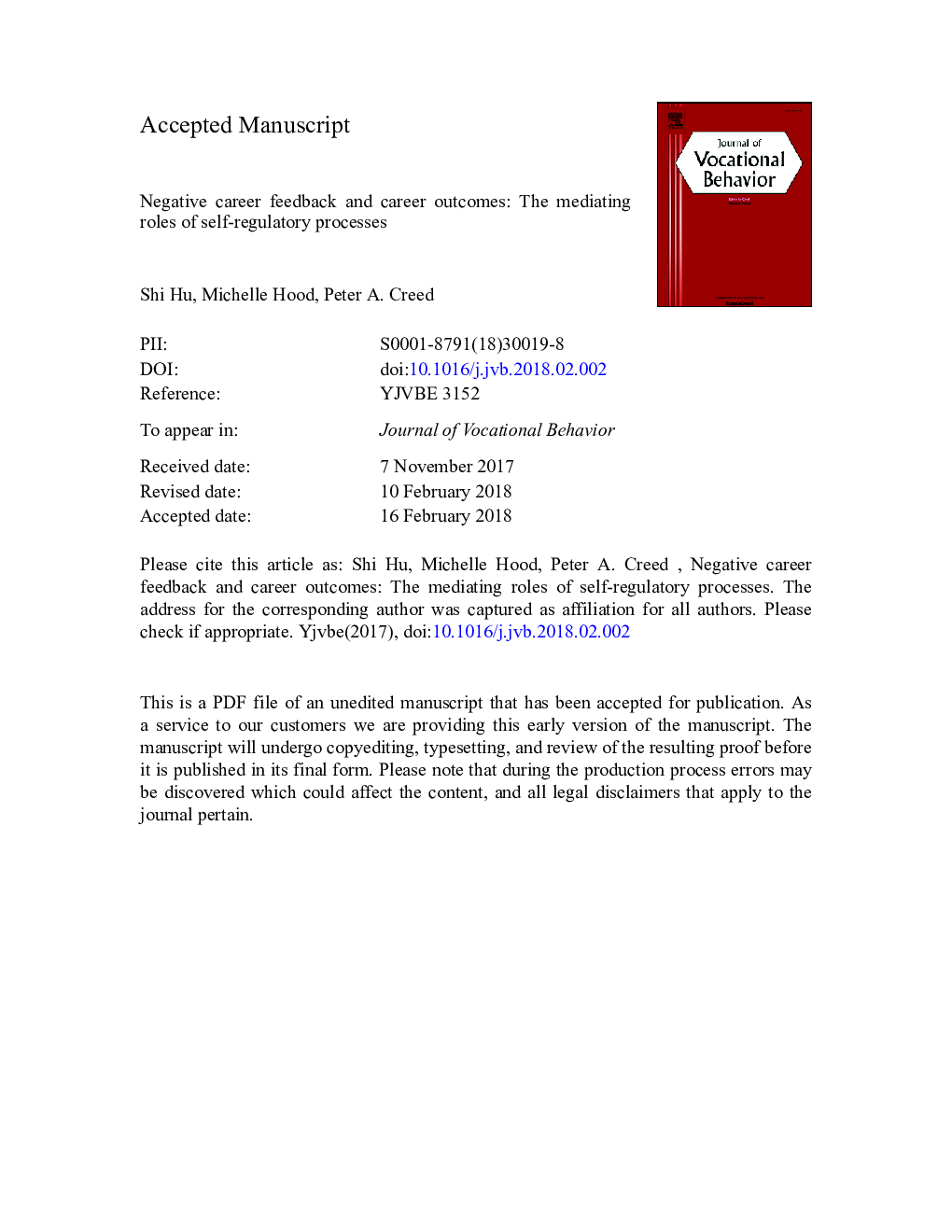| Article ID | Journal | Published Year | Pages | File Type |
|---|---|---|---|---|
| 7247317 | Journal of Vocational Behavior | 2018 | 41 Pages |
Abstract
We surveyed 413 Chinese university/college students (57.9% female; mean ageâ¯=â¯19.01â¯years, SDâ¯=â¯1.13) and tested a self-regulation model. We hypothesized that three types of negative career feedback (on progress, on goal suitability, and on improvements needed) would relate to greater career exploration and career goal shifting via cognitive (self-efficacy), affective (career stress), and motivational (goal commitment) self-regulatory processes. As expected, perceiving more negative feedback on goal suitability and improvements needed was related to higher career goal shifting via higher career stress and lower goal commitment. In contrast to our hypotheses, more negative feedback on progress was related to lower career goal shifting via higher goal commitment, and related to lower career exploration via lower career self-efficacy. These findings highlight the important role of career feedback in young adults' career self-regulation and career outcomes.
Related Topics
Social Sciences and Humanities
Business, Management and Accounting
Marketing
Authors
Shi Hu, Michelle Hood, Peter A. Creed,
